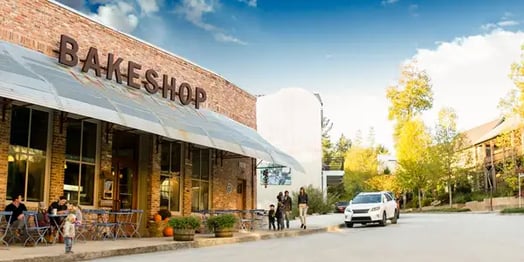What began in 2004 as one man’s wish to escape “visual pollution” of society is now Serenbe: a 1k-acre community in the middle of a Georgia forest, designed to promote the physical, emotional, and spiritual wellness of its residents.

Consisting of 300 homes with wrap-around porches and athleisure-clad inhabitants, Serenbe is leading the charge in planned “wellness communities” — a booming market worth over $134B globally.
But with its strict rules (like not being allowed to park your car outside), and the most affordable home there starting at $359k, we have to wonder…
What’s so “utopian” about Serenbe?
For one, guests literally get free bunnies at check-in. They also have a 25-acre organic farm, farmer’s market, hotel, spa, bookstore, and a New York Times-recognized “playhouse.”
The community is designed to encourage active lifestyles: its 600 residents (including 130 “free range kids”) have at their disposal blueberry-lined trails and “medicinal landscaping” with herbs for natural remedies.
It’s also home to Steve Nygren, Serenbe’s charismatic 71-year-old founder.
The Sensei of Serenbe
Described as having “energy rivaling a cruise ship director,” Nygren is a retired restaurateur who bought 60 acres of land in 1991 “on a whim.” A few years later, he quit his job and moved onto the property with his wife and 3 daughters.
When asked how he stays in such good shape as a 70+-year-old, he says only: “I live.”
Now, Nygren’s teaching others his ways as a “wellness community consultant” — and aspiring developers, city commissioners, and investors travel from all over the world to sop up his wisdom.
Investors are starting to catch on
Serenbe’s not just a pastoral utopia: it’s a lucrative investment opportunity, and plans are in place to construct 1.2k homes for 3.5k residents in the next few years.
In the US alone, the wellness community market is worth $52.5B, and globally, it’s growing 6.4% per year. There are nearly 740 development projects in production around the world, capable of housing over 4.1m people at full capacity in the next few decades.
As Nygren puts it, the utopian town “will be a niche until it’s everywhere.”
